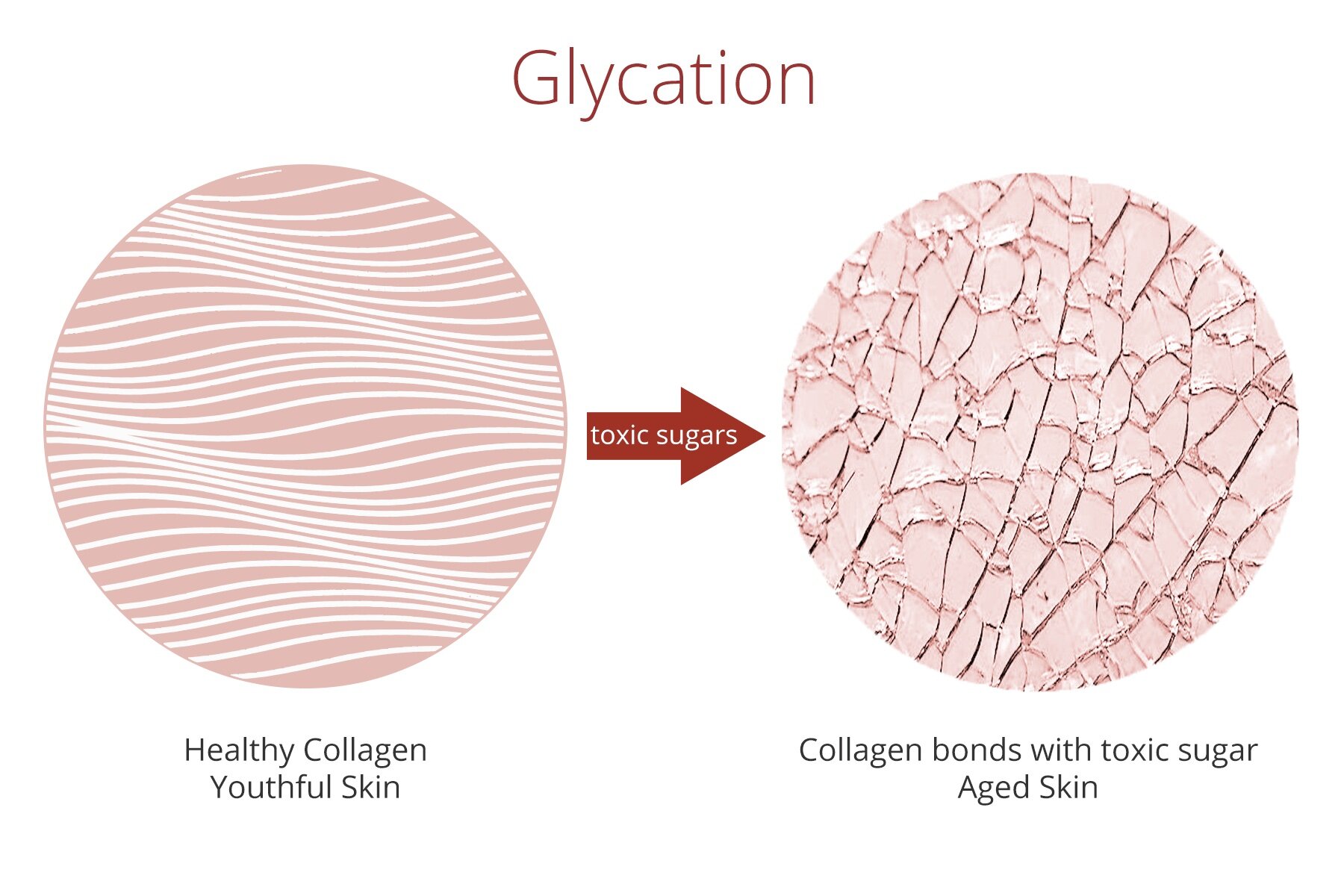Do you suffer from eczema and wonder if your sugar intake could be the culprit? Many people have speculated that sugar can trigger eczema outbreaks, but is there any truth to this claim? In this article, we will explore the relationship between sugar and eczema to determine if too much sugar can actually cause eczema.

Can Too Much Sugar Cause Eczema?
Eczema is a skin condition that affects millions of people worldwide, and it can be caused by a variety of factors. One of the most debated causes of eczema is sugar consumption. While there is no conclusive evidence that sugar directly causes eczema, research has shown that there may be a connection between the two. In this article, we will explore the relationship between sugar and eczema and whether or not sugar can cause eczema.
The Link Between Sugar and Eczema
There is no doubt that a diet high in sugar can be harmful to your health. Sugar can cause inflammation in the body, and inflammation is a known trigger for eczema. Inflammation can cause the skin to become red, itchy, and irritated, leading to a flare-up of eczema. Additionally, sugar can weaken the immune system, which can make it harder for your body to fight off infections and other triggers that can cause eczema.
While there is no direct link between sugar and eczema, studies have shown that people with eczema tend to consume more sugar than those without the condition. This suggests that there may be a correlation between the two, although more research is needed to determine the exact relationship.
The Effects of Sugar on the Body
Sugar can have a number of negative effects on the body, including:
- Increases inflammation
- Causes weight gain
- Weakens the immune system
- Raises blood sugar levels
- Contributes to the development of chronic diseases
These effects can all contribute to the development of eczema, as inflammation, weakened immune system, and chronic diseases are all known triggers for the condition.
The Benefits of Reducing Sugar Intake
Reducing your sugar intake can have a number of benefits for your health and your skin, including:
- Reduced inflammation
- Weight loss
- Stronger immune system
- Lower blood sugar levels
- Reduced risk of chronic diseases
- Clearer, healthier skin
By reducing your sugar intake, you can reduce your risk of eczema flare-ups and improve the overall health of your skin.
Sugar vs. Natural Sweeteners
If you are looking to reduce your sugar intake, you may be wondering about the best alternatives. Natural sweeteners like honey, maple syrup, and stevia can be good options, as they are lower in sugar and have additional health benefits. However, it is important to remember that even natural sweeteners should be consumed in moderation, as they can still contribute to inflammation and other negative effects on the body.
The Bottom Line
While sugar may not directly cause eczema, it can contribute to the development of the condition by causing inflammation and weakening the immune system. Reducing your sugar intake can have a number of benefits for your health and your skin, and natural sweeteners can be good alternatives. However, it is important to remember that even natural sweeteners should be consumed in moderation, and a balanced diet is key to maintaining healthy skin and overall health.
Contents
Frequently Asked Questions
What is Eczema?
Eczema is a skin condition that causes itchy, dry, and red patches on the skin. It can affect people of all ages and can be caused by a variety of factors, including genetics, environment, and lifestyle choices.
Eczema is not contagious and can be managed with proper treatment and self-care.
How does Sugar Affect Eczema?
Sugar can worsen eczema symptoms by triggering inflammation in the body. When you consume too much sugar, it can cause your blood sugar levels to spike, leading to an increase in inflammatory chemicals in the body.
This inflammation can then trigger eczema flare-ups, causing your skin to become red, itchy, and irritated. Reducing your sugar intake can help manage your eczema symptoms.
What are the Other Triggers for Eczema?
There are several triggers for eczema, including stress, environmental factors, and certain foods. Common foods that can worsen eczema symptoms include dairy, eggs, soy, and wheat.
Other triggers include harsh soaps, detergents, and fragrances, as well as extreme temperatures and humidity.
Can Eczema be Cured?
While there is no cure for eczema, it can be managed with proper treatment and self-care. Treatment options include topical creams, oral medications, and light therapy.
Self-care measures include avoiding triggers, moisturizing regularly, and practicing stress management techniques.
When Should I See a Doctor for Eczema?
If you are experiencing severe eczema symptoms, such as intense itching, swelling, or oozing, you should see a doctor as soon as possible. They can prescribe stronger medications and provide additional treatment options.
You should also see a doctor if your eczema is affecting your quality of life or if you are experiencing symptoms of infection, such as fever or chills.
Is this Causing Your ECZEMA? (Easy Way to Tell) 2023
In conclusion, studies have shown that there may be a link between consuming too much sugar and developing eczema. Although more research is needed to fully understand this connection, it’s important to be mindful of the amount of sugar we consume on a daily basis.
Reducing sugar intake can not only potentially improve skin health but also overall health. Incorporating more whole foods into our diet and limiting processed foods and sugary drinks can help us achieve a healthier balance.
In addition to dietary changes, it’s also important to consult with a healthcare provider if you are experiencing eczema symptoms. They can help provide personalized recommendations and treatment options to help manage and potentially alleviate symptoms. Remember, taking care of our bodies from the inside out is key to achieving optimal health.